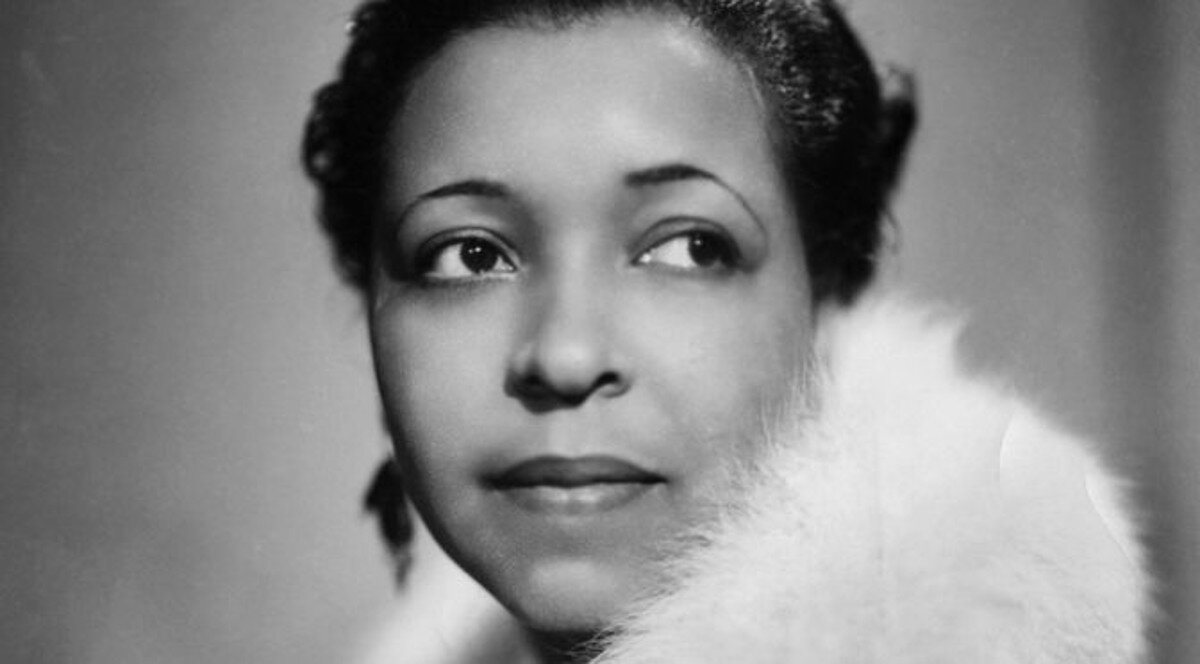Ethel Waters (October 31, 1896 – September 1, 1977) was an American singer and actress who had a profound influence on jazz, blues, gospel, and American popular music. She was also a trailblazing actress in film and theater, becoming one of the first African-American performers to achieve mainstream success. Waters’ rich, expressive voice and her ability to convey deep emotion through her music made her a pioneering figure in the entertainment industry, and she broke barriers for African-American artists in a time of segregation and racial discrimination.
Early Life and Career Beginnings
Ethel Waters was born into poverty in Chester, Pennsylvania, and endured a difficult childhood. She began singing professionally as a teenager, performing in vaudeville shows and clubs. Her early performances were rooted in blues and ragtime, and she quickly gained a reputation for her powerful voice and stage presence. She made her recording debut in 1921 with the song “The New York Glide” for Cardinal Records, though it was her later recordings that would cement her legacy in the jazz and blues genres.
Waters was a pioneer in blending different musical styles, performing blues, jazz, and pop music with equal flair. She soon became one of the most popular African-American entertainers of the early 20th century, performing in Harlem’s famous clubs during the Harlem Renaissance.
Musical Success and Innovations
Ethel Waters was a versatile performer who could seamlessly shift between genres. She achieved success in blues, jazz, and pop, but her voice and phrasing made her especially influential in the development of jazz singing. Some of her most iconic recordings from the 1920s and 1930s include:
- “Dinah” (1925): This recording became a major hit and helped establish Waters as a national figure. Her version of the song is celebrated for its bright, swinging delivery, which bridged the gap between jazz and popular music.
- “Stormy Weather” (1933): Waters’ version of Harold Arlen and Ted Koehler’s song is one of her most enduring recordings. The song became a standard of the Great American Songbook, and her emotional performance captured the melancholy and intensity of the lyrics.
- “Am I Blue?” (1929): Another iconic recording, this blues ballad showcases Waters’ ability to convey heartache and vulnerability, making her one of the premier vocalists of her time.
In the early 1930s, Waters signed with Columbia Records, becoming the first African-American woman to integrate the popular music charts. Her success crossed racial boundaries, and she achieved mainstream recognition—a significant accomplishment during an era of segregation in the entertainment industry.
Acting Career and Impact
Ethel Waters was also an accomplished actress, becoming one of the first African-American women to break into Broadway and Hollywood. Her acting career began in earnest with her role in the Broadway musical “Blackbirds” (1930). Waters continued to shine in Broadway productions like “As Thousands Cheer” (1933), where she became the first African-American performer to integrate a major Broadway revue.
She made her mark in Hollywood, starring in films such as:
- “Cabin in the Sky” (1943): A musical film directed by Vincente Minnelli, where Waters played a leading role alongside Lena Horne. The film was a significant achievement as it featured an all-African-American cast.
- “Pinky” (1949): Waters’ performance as a proud grandmother in this drama about racial identity earned her an Academy Award nomination for Best Supporting Actress, making her only the second African-American to receive an Oscar nomination.
Her work in both film and theater helped pave the way for future generations of African-American actors, including Sidney Poitier and Harry Belafonte. Waters’ ability to bring emotional depth and dignity to her roles helped challenge racial stereotypes and opened doors for African-American performers in Hollywood.
Gospel Music and Later Career
Later in her career, Ethel Waters became known for her gospel performances. She found renewed success performing religious music, which she credited with helping her navigate personal struggles and hardships. In 1951, Waters began performing in the Billy Graham crusades, singing gospel standards like “His Eye Is on the Sparrow,” which became one of her signature songs.
Waters’ embrace of gospel music added a new dimension to her career, and her powerful renditions of spirituals further solidified her legacy as a versatile and emotionally expressive performer.
Influence and Legacy
Ethel Waters’ influence on American music and entertainment is profound. She helped shape the development of jazz and blues singing, and her emotional intensity and vocal phrasing influenced later jazz singers such as Billie Holiday, Ella Fitzgerald, and Lena Horne. Waters was a pioneer who broke racial barriers in both music and film, achieving success and recognition in an industry marked by segregation and prejudice.
Her significance goes beyond her musical accomplishments. Waters was a symbol of resilience and strength for African-American performers, achieving mainstream success in a racially divided America. Her career also marked a turning point for African-Americans in entertainment, as she was one of the first Black performers to be featured in non-stereotypical roles in Hollywood and Broadway.
Honors and Awards
Ethel Waters’ career was celebrated with numerous accolades, including a Grammy Hall of Fame Award for “Stormy Weather.” In 1994, she was posthumously inducted into the Grammy Hall of Fame, recognizing her contributions to music history. Additionally, she was inducted into the Christian Music Hall of Fame in recognition of her gospel performances.
YouTube – Ethel Waters – Topic Channel:
https://www.youtube.com/channel/UCJ-kTJBYqO5ucEdev0koDjQ
References
- Craft, S.S. Ethel Waters: Stormy Weather. University Press of Mississippi, 2020.
- Bordman, Gerald. American Musical Theatre: A Chronicle. Oxford University Press, 2010.
- Giddins, Gary. Visions of Jazz: The First Century. Oxford University Press, 1998.
- “Ethel Waters Biography.” AllMusic by John Bush. Available at: AllMusic.com
- Giddins, Gary. “Ethel Waters.” Encyclopedia Britannica. Available at: britannica.com


Leave a Reply